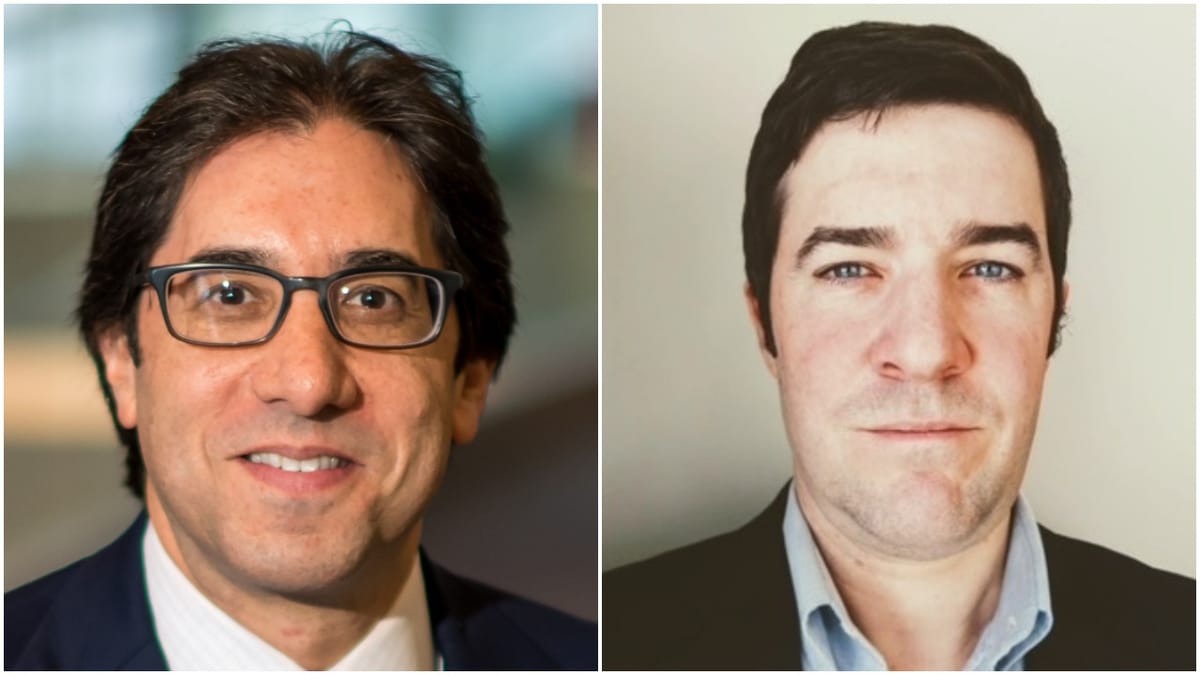Jeff Blum and V. Noah Campbell: Unleashing the Next Wave of American 5G through Competition in the 12 GHz Spectrum Band
Allowing 5G use of the 12 GHz band will lead to better broadband.

The Biden administration has recognized the importance of spurring competition in the America economy, including the telecommunications market. Indeed, President Biden recently signed an Executive Order aimed at promoting “a fair, open, and competitive marketplace.” Today, more than 30 diverse companies and stakeholders (known collectively as the 5Gfor12GHz Coalition) are actively working to further this national priority by urging the FCC to expand the use of a huge swath of mid-band spectrum. Doing so will unleash innovation and additional choice in the marketplace, to the benefit of competition and American consumers.
We represent DISH and RS Access, two members of this Coalition. Our Coalition was founded on the belief that the FCC can and should modernize its rules for the 12.2-12.7 GigaHertz (12 GHz) band to allow for 5G use. In doing so, the FCC will further the Administration’s efforts to promote competition by enabling more choice, innovation, connectivity, and lower costs for families and businesses. And, the FCC can unleash the 12 GHz band while protecting existing satellite users, an outcome that will propel competition among broadband providers.
Put simply, allowing 5G use of the 12 GHz band will lead to better broadband options and services for all Americans. By decreasing latency and enhancing video streaming, it will allow more families to access telehealth, more students to connect to virtual classrooms, and more businesses to reach new customers. By amplifying speeds, it will enable a new generation of mobile apps that bring services families need to their fingertips within minutes.
And by boosting data collection and aggregation, it will revolutionize industries like agriculture, as farmers and ranchers will now have smart sensors that provide critical information about crops and livestock in real time. These are just a few examples of how putting 12GHz to work for accelerated 5G deployment will benefit consumers across the nation, daily.
The best part about modernizing rules for the 12 GHz Band? We do not have to sacrifice any services to reap the benefits this 500 MHz of key spectrum has to offer. As the science and data demonstrate, there are many ways to protect existing users of the 12 GHz band while expanding use of the band for 5G and other broadband services—giving all operators in this space a chance to succeed and innovate for American consumers and businesses.
The proof is in the data: a recent study by the econometric firm Brattle Group (which has specialized in analyzing the economic impact of spectrum policy) shows that modernizing rules in the 12 GHz band would bring extraordinary U.S. consumer welfare benefits. And, another study by one of the world’s leading radio engineering firms demonstrates how leveraging this spectrum for 5G networks will spur the rapid deployment of next generation applications in the United States.
Modernizing rules for the 12 GHz band truly is a win-win-win for all sectors of our economy. It benefits the more than 400 million consumers and businesses who rely on 5G for critical services; customers who depend on reliable products from current licensees like satellite providers; and families still living without access to broadband.
The evidence is clear, the record is robust, and the time is now. We must not let this opportunity to accelerate American competition pass us by. As Acting Chairwoman Jessica Rosenworcel said, “Our economy thrives on competition. It is the reason the United States is home to some of the most dynamic companies in the world.” We could not agree more. And for that reason, we urge the Commission to seize this moment and unleash the power of 12 GHz for 5G.
Jeff Blum serves as DISH’s Executive Vice President, External & Legislative Affairs, overseeing public policy, regulatory and government affairs in Washington. He has been with DISH since 2005, and currently serves as Vice-Chairman of the Satellite Broadcasting and Communications Association as well as serving on the boards of INCOMPAS, the Computer & Communications Industry Association and the Broadband Internet Technical Advisory Group. Jeff was a partner at the Los Angeles firm of Davis Wright Tremaine, where his practice focused on copyright, First Amendment and anti-piracy litigation
V. Noah Campbell founded RS Access in 2018 to acquire spectrum in the 12 GHz band in the United States and to operate wireless networks serving a wide variety of constituents throughout our markets, which comprise approximately 15% of the US population. RS Access’ service is designed to ensure that customers can affordably acquire MVDDS point-to-multipoint connections to augment existing network architectures. Campbell, a wireless industry entrepreneur, also founded Radio Spectrum Group, LLC and MSD Capital, L.P.
This piece is exclusive to Broadband Breakfast. Broadband Breakfast accepts commentary from informed observers of the broadband scene. Please send pieces to commentary@breakfast.media. The views expressed in Expert Opinion pieces do not necessarily reflect the views of Broadband Breakfast and Breakfast Media LLC.










